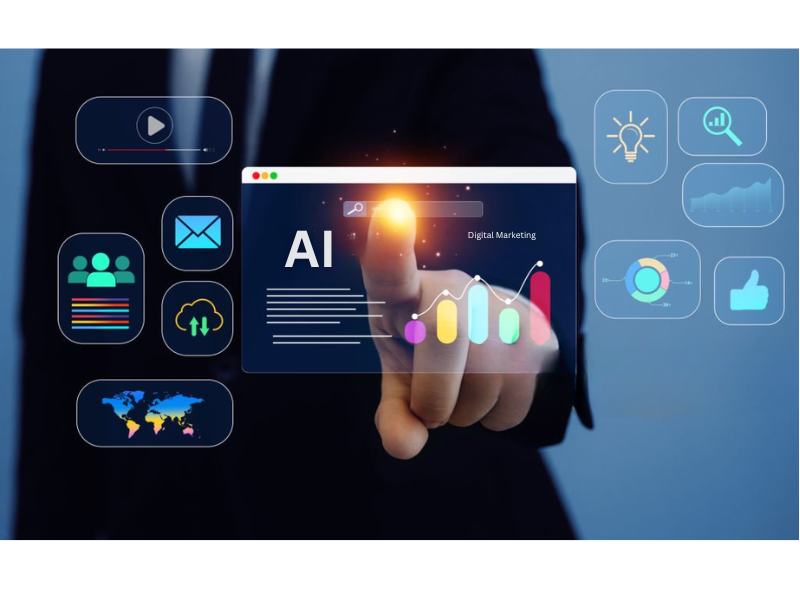Artificial Intelligence (AI) has become a cornerstone of modern digital marketing, transforming the way brands engage with their audience. As we step into 2025, AI continues to revolutionize strategies, enabling marketers to create more personalized, efficient, and effective campaigns. This blog delves into how AI is shaping digital marketing strategies in 2025, highlighting key trends and actionable insights to help businesses thrive in the evolving landscape.
The Current State of AI in Digital Marketing
AI has already established itself as a game-changer in digital marketing, revolutionizing how brands interact with consumers by automating processes, delivering hyper-targeted content, and analyzing vast amounts of data in real-time to:
- Analyze consumer behavior.
- Automate repetitive tasks.
- Enhance customer engagement.
Marketers who embrace AI are witnessing improved ROI and gaining a competitive edge in the market.
How AI is Revolutionizing Consumer Interactions
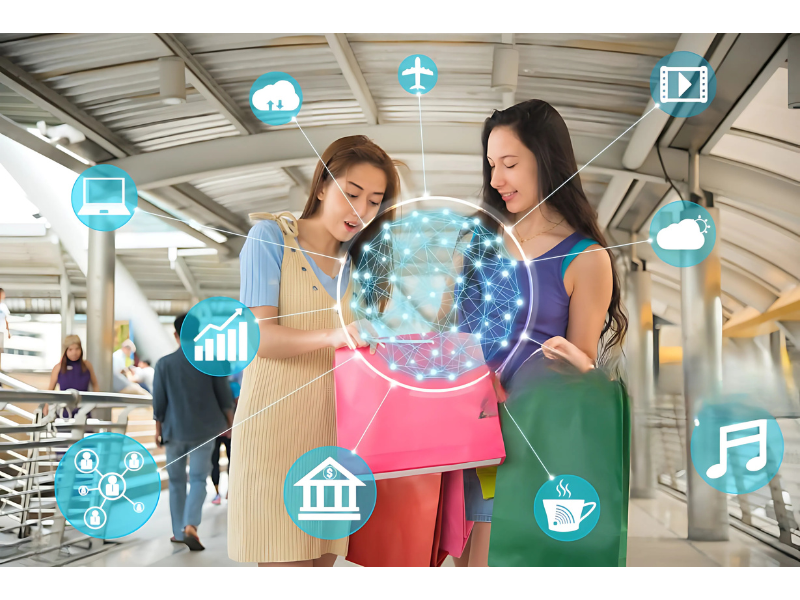
AI in digital marketing is revolutionizing the way brands engage with customers, transforming traditional strategies into dynamic, personalized experiences. By harnessing advanced AI technologies, businesses can deliver tailored content based on customer preferences, behaviors, and past interactions, ensuring more relevant and meaningful communications. AI-powered automation enables brands to engage with their audience 24/7, maintaining high-quality experiences without interruption. With the ability to predict customer needs and preferences through predictive analytics, AI allows brands to proactively address issues and deliver solutions even before customers are aware of them.
Through predictive analytics, AI in digital marketing analyzes vast amounts of consumer data to anticipate future behaviors, preferences, and potential pain points. This predictive capability empowers businesses to customize marketing messages and content, ensuring they resonate with the right audience at the right time. AI-driven tools like chatbots and virtual assistants are enhancing customer service by offering real-time support, instant responses to inquiries, and efficient issue resolution. These tools are increasingly becoming integral to digital marketing strategies, boosting customer satisfaction while simultaneously reducing response times and improving overall engagement.
The power of AI in digital marketing extends beyond automation and customer service, helping businesses segment audiences more precisely and craft hyper-targeted campaigns. By leveraging machine learning algorithms, AI can identify micro-segments within customer bases, allowing brands to tailor their messaging to each group’s unique interests. As AI continues to evolve, it opens up new possibilities for hyper-personalized content, real-time customer support, and more interactive brand-consumer relationships, ensuring that businesses can stay ahead of the curve in a rapidly changing digital landscape.
Predictive Analytics: The Future of Data-Driven Insights
Predictive analytics allows businesses to foresee trends and consumer behaviors, making it a critical tool for marketers. By analyzing historical data and using AI models, marketers can:
- Anticipate Market Shifts: Predict upcoming trends to adapt strategies accordingly.
- Identify High-Value Customers: Focus on customers most likely to generate revenue.
- Optimize Budget Allocation: Allocate resources efficiently for maximum ROI.
- Improve Campaign Performance: Tailor campaigns to resonate with specific audiences, enhancing their effectiveness.
- Enhance Customer Retention: Detect at-risk customers and deploy tailored strategies to retain them.
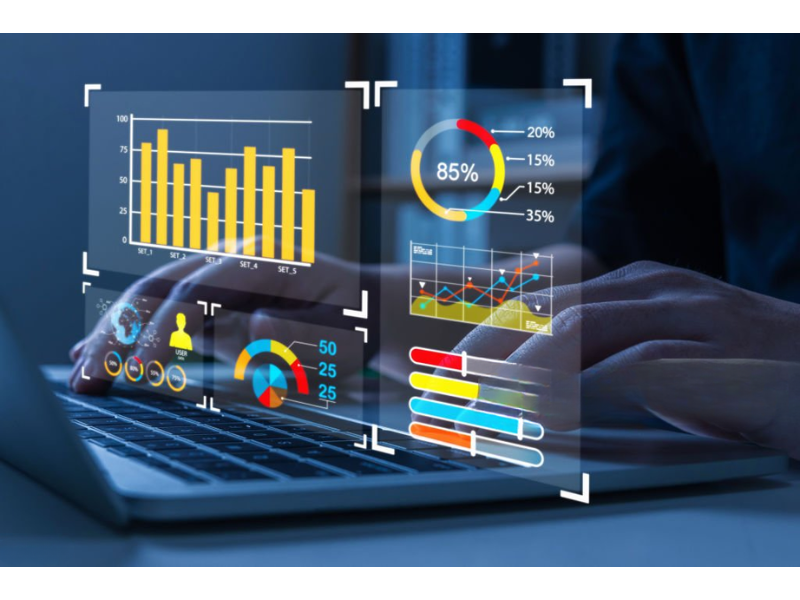
Harnessing Predictive Analytics for Smarter Campaigns
By predicting trends and consumer behaviors, marketers can tailor their campaigns to resonate with specific audiences, ensuring higher engagement. Tools like Salesforce Einstein empower businesses to adapt quickly and stay ahead of competitors.
Pro Tip: Use AI tools like Google Analytics 4 or HubSpot’s predictive lead scoring to optimize your campaigns.
Marketing Automation: Streamlining Processes
Marketing automation has evolved significantly, thanks to AI, enabling marketers to streamline processes and enhance productivity. Key advancements in 2025 include:
- Scheduling Content Efficiently.
- Dynamic Content Generation.
- Triggering Personalized Email Campaigns.
- Automated A/B Testing.
- Optimizing Workflows.
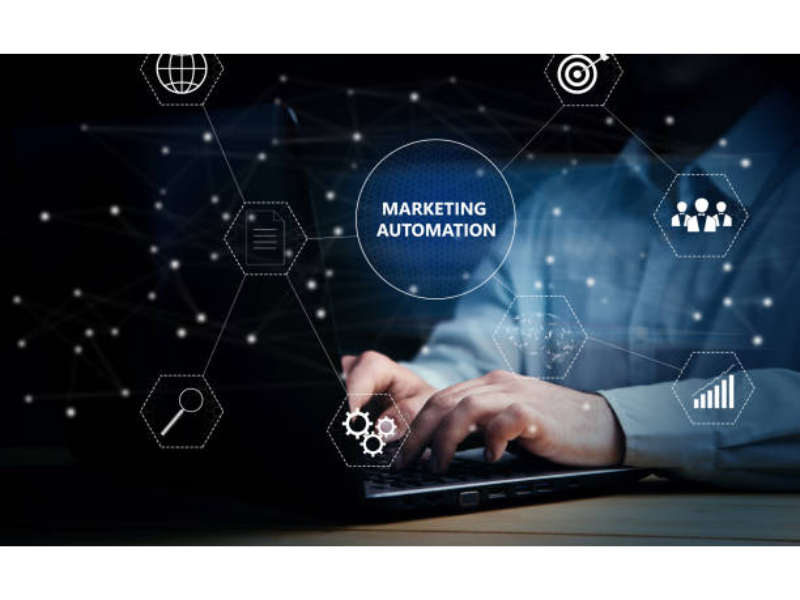
Dynamic Content Generation
One of the most time-consuming aspects of marketing is creating content that resonates with your audience. AI in digital marketing has revolutionized this process by automating dynamic content generation. With AI-powered tools, marketers can schedule content that is tailored to different customer segments, based on their behavior, preferences, and engagement history. This automation ensures that content is always relevant and timely, increasing engagement and conversion rates. By utilizing AI in digital marketing, businesses can schedule personalized content at scale, ensuring it reaches the right audience at the right time.
Triggering Personalized Email Campaigns
Email marketing is a powerful tool for nurturing customer relationships, and AI in digital marketing takes it to the next level by automating personalized email campaigns. AI-driven systems can schedule emails based on specific triggers, such as user actions or lifecycle stages. For example, when a customer abandons a shopping cart, AI can automatically send a personalized reminder email, offering incentives or related products. This level of personalization is not only time-efficient but also ensures that each customer receives communication that speaks directly to their needs and interests, improving overall customer engagement.
Automated A/B Testing
A/B testing is essential for optimizing marketing campaigns, but it often involves manual scheduling and monitoring. With the power of AI in digital marketing, A/B testing becomes automated and far more efficient. AI tools can schedule A/B tests, ensuring that they run at optimal times and under the right conditions. Moreover, AI can instantly analyze test results, identify winning variations, and automatically apply changes to campaigns without requiring human intervention. This streamlining of A/B testing helps marketers save time, improve decision-making, and achieve better results in less time.
Optimizing Workflows:
AI in digital marketing is also a game-changer when it comes to optimizing workflows. Scheduling tasks across multiple marketing channels can be overwhelming, but AI-powered tools provide a solution by automating and streamlining this process. With AI, businesses can create a cohesive and well-timed marketing calendar, scheduling posts, email newsletters, ads, and other content across different platforms. AI also helps identify bottlenecks in workflows, ensuring that content creation, approval, and publication run smoothly. By optimizing workflows with AI, businesses can maintain a consistent marketing presence without the stress of manual scheduling.
Brands using AI automation report a 30% increase in productivity and a significant reduction in marketing costs.
AI Tools that Enhance Marketing Automation
AI tools like HubSpot, Marketo, Jasper, and Copy.ai allow marketers to automate tasks such as content scheduling, email marketing, and dynamic content creation, resulting in improved productivity and reduced marketing costs.
Hyper-Personalized Customer Experiences
In 2025, hyper-personalization has become essential for brands to drive customer satisfaction, loyalty, and engagement. AI enables marketers to deliver tailored experiences at scale by:

- Real-Time Personalization: AI analyzes user behavior and preferences in real time to deliver dynamic, customized content.
- Product Recommendations: Platforms like Amazon use AI to suggest products based on past purchases and browsing history, boosting customer satisfaction and sales.
- Predictive Insights: AI identifies trends and anticipates customer needs, enhancing retention strategies.
- AI Chatbots: Tools like ChatGPT and Dialogflow provide 24/7 support, improving the overall user experience.
Case Study: Successful Implementation of Hyper-Personalization
An e-commerce brand that implemented AI-driven personalization saw a 40% increase in conversion rates. Hyper-personalization is no longer optional; it’s a necessity for brands aiming to thrive in today’s competitive landscape.
Advanced AI Ad Targeting
AI-driven ad targeting is revolutionizing how marketers reach their audiences, ensuring precision and relevance. Platforms like Google Ads and Meta Ads (formerly Facebook Ads) utilize AI to analyze user behavior and deliver ads with unmatched accuracy. Key benefits and advancements include:
- Audience Segmentation: AI identifies micro-segments, enabling highly specific targeting that improves engagement.
- Contextual Advertising: Ads are displayed in relevant contexts, ensuring higher interaction and click-through rates.
- Increased Conversion Rates: AI enhances the likelihood of reaching the right audience at the right time.
- Reduced Ad Spend Waste: Resources are allocated effectively, minimizing unnecessary spending.
- Enhanced ROI: Optimized targeting leads to better performance and higher returns on investment.
Precision in Advertising: AI’s Role in Reducing Waste
Platforms like Google Ads and Facebook Ads Manager use AI to analyze user behavior and deliver ads with unmatched accuracy, improving engagement and conversion rates while minimizing wasteful spending.
Challenges in AI-Driven Digital Marketing
While AI offers transformative benefits for digital marketing, it also presents notable challenges that businesses must address:
- Data Privacy Concerns: Stricter regulations such as GDPR and CCPA require brands to handle customer data responsibly, ensuring compliance to maintain trust.
- High Implementation Costs: The initial investment in AI tools and technologies can be a barrier, especially for small and medium-sized businesses.
- Ethical Issues: Balancing AI-driven decisions with ethical considerations, such as avoiding bias or misinformation, is critical to building sustainable and fair marketing practices.
Navigating the Hurdles in AI Adoption
Overcoming challenges like data privacy, high costs, and ethical considerations is key to successfully implementing AI in marketing strategies. To address these challenges, businesses should partner with trusted AI solution providers and implement robust strategies to ensure compliance, manage costs effectively, and maintain ethical standards in marketing practices.
Preparing for an AI-Driven Future
To stay competitive in 2025 and beyond, marketers must adapt to the rapidly evolving AI landscape by:
- Investing in AI Training: Equip your team with the knowledge and skills to effectively use AI tools and technologies, ensuring they can harness AI’s full potential.
- Adopting Scalable AI Solutions: Start with small, manageable AI tools and scale them as your business grows and your needs evolve.
- Staying Updated: Follow industry trends, embrace innovation, and continuously explore emerging AI advancements to stay ahead of the curve.
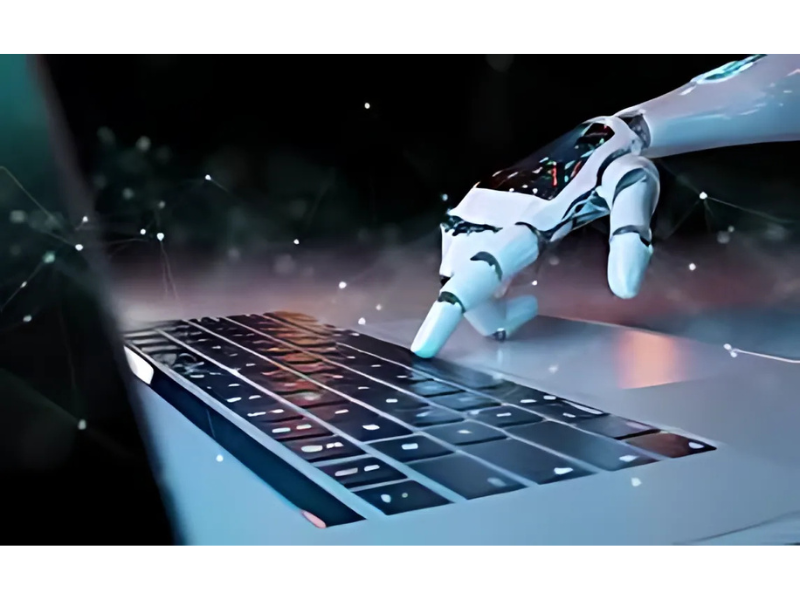
Brands that embrace AI today are building the foundation for a more innovative and competitive tomorrow.
Conclusion
AI is not just a tool; it is a transformative force reshaping the future of digital marketing. In 2025, AI-driven technologies are redefining how brands interact with consumers by enhancing efficiency, personalization, and targeting. From predictive analytics that foresee trends to hyper-personalized customer experiences that build loyalty, the opportunities for marketers to innovate and thrive are limitless.
However, leveraging AI effectively requires a proactive approach. Marketers must invest in AI training, adopt scalable solutions, and remain informed about the latest advancements to stay ahead of the curve. By addressing challenges such as data privacy and ethical considerations, businesses can build trust and create sustainable strategies that drive long-term success.
As the competitive landscape continues to evolve, brands that embrace AI today will lead the way tomorrow. Are you ready to revolutionize your digital marketing strategies and unlock the full potential of AI? The future of marketing is here—it’s time to embrace it.

